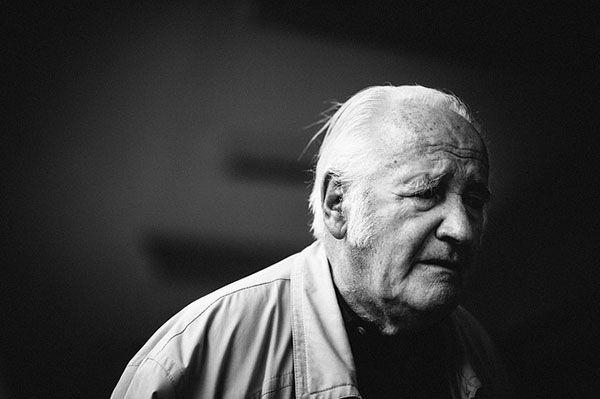5 Thoughts for Your Worst Days
July 15, 2016 • Blog Post
Some days are exquisitely painful. Loved ones die. Relationships decay. Dreams wither away. How do we endure the pain of loss when it feels unbearable?
Elder Richard G. Scott advised that, when we are in the midst of adversity, we not ask why but “rather ask, What am I to do? What am I to learn from this experience? What am I to change? Whom am I to help? How can I remember my many blessings in times of trial? (“Trust in the Lord”).
For your worst days, here’s counsel from five BYU devotionals on continuing on in the midst of pain.
- Sometimes the absence of a miracle becomes a miracle itself.
“In those times of trial, despair, fear, and worry, the stage is best set for God to show forth His power. Indeed, it is often in the most dire of circumstances that God’s arm is revealed most miraculously.
“Miracles require faith and generally some amount of courage and hope on our part as well as trust that God will always do His part. We must also remember that God’s ways are not our ways. His response to a given situation might be different than what we want to have happen. In addition, the timing of His response could vary greatly from our expected timing. Yet in all cases, God’s involvement in our lives is carefully crafted to bring about the greatest good. . . .
“What struck me was that ‘the absence of the miracle’ could actually be a miracle in and of itself—the premise being that as God’s ways and thoughts are higher than man’s, at times the Lord may choose to provide a miracle counterintuitive to what we may want, knowing full well His own end purpose. Because of the absence of the miracle fixed in our minds, He is better able to help us grow and thus become happier than we ever could have been had we received the desired miracle for which we had prayed.”
—Dallan R. Moody, “What Happens When Life Gets One Degree Colder?”

Photo credit: Grigory Kravchenko
- We hold power to choose positivity even in the midst of struggles.
“We can choose our response to adversity. We can be bitter and angry, and we can choose to let it fester, canker, and destroy who we are. Or we can learn to love, forgive, accept, and learn from our fate and forget ourselves in the service of others. . . .
“If we rely on the Lord, we not only can survive adversity, we can learn, grow, and thrive. It is my hope and prayer that each of us will not only triumph over the adversity in our lives but will be able to serve and lighten others’ burdens.”
—Ramona O. Hopkins, “A Miracle in the Making: Finding the Meaning in Adversity”
- Healing hurts, but it is for our benefit.
“Healing is much more than ‘getting better’ or ‘having our problems go away.’ Healing is growth, development, and maturation. In a word, healing is change. It takes time and energy and struggle, but healing teaches us. As [Elaine S.] Marshall said: ‘Healing can help us to become more sensitive and more awake to life. . . . Healing invites gifts of humility and faith. It opens our hearts to . . . truth, beauty, . . . and grace.’
“But remember, even with all that beauty and growth and grace, healing does hurt.
“Some people I have had the privilege of working with over the years have had a hard time reconciling the fact that healing requires suffering and yet is a gift from our Savior. How is it that a loving God would allow us to suffer? I have come to realize that my Savior cares more about my growth than He does about my comfort. One evidence of His love is that He does not spare me from the suffering I need for my development and progression, even when I get mad at Him. . . .
“Grace is the power by which healing occurs. In every aspect of His mortal and postmortal ministry, Christ went about healing all manner of afflictions (see Matthew 9:18–25; 3 Nephi 17:9). His part is to be our atoning Savior, and our part is to be courageous enough to act. He then provides the grace and healing.”
—Jonathan G. Sandberg, “Healing = Courage + Action + Grace”
- Gratitude can help us identify Heavenly Father’s hand in our lives.
“I have learned how deeply Heavenly Father loves each one of us. He is always nearby when we are going through tough times, but it’s up to us whether we will look into His eyes and listen to His voice. We look into His eyes and we listen to His voice when we immerse ourselves in the scriptures and we converse with Him in daily, meaningful prayer. I testify to you that by keeping our focus on Him and listening to His voice, we will see the goodness and wonder that surrounds us, even in the most difficult of circumstances. . . .
“To look for joy in our lives we need only look for the ways in which God’s hand has touched us or our family or our friends that day. Sometimes He touches us through tender mercies. Other times He touches us with wonderful humor. And frequently we will see His hand in our lives by the way in which He prompts us to serve someone that day or to lift someone else who is struggling. We don’t have to write lengthy, mundane journal entries about our days. Instead, we can simply write one or two lines in which we identify the hand of God in our lives that day. As we do this, we will see more clearly how blessed our lives really are. We will be filled with gratitude and optimism. We will see the world more in the way our Heavenly Father sees the world. We will see the world as it really is and be filled with joy and hope.”
—T. Jeffrey Wilks, “Optimism and Joy in the Gospel of Jesus Christ”

Photo credit: Z S
- Pain is a temporary state; happiness is our destiny.
“Do not let a bad day cause you to think that life is bad. Do not let low self-esteem discount your high blessings. In short, do not homogenize your hopes by mixing and treating them as if all hopes and aspirations are equal. They are not. The hope for a resurrection is guaranteed unconditionally by the Atonement of the Savior. . . .
“The tendency to be carried on the tides of today’s troubles and disappointments will diminish as we mature. As our understanding of the gospel deepens, it becomes ever more clear that proximate problems need not, and must not, undercut ultimate realities. Thus, as we confront problems which we might shiveringly sidestep, if we could, let us realize, as one poet did, that ‘sometimes the only way to go is through.’ We go on that journey with justified hopes to help our hunger and with realities to reassure us. And, in the midst of our transitory troubles, we have the knowledge that He is near at hand, and within us there is even the sense that in the dim past we agreed to all this and that now we must perform on that pledge. . . .
“The gift of immortality to all mankind through the reality of the Resurrection is so powerful a promise that our rejoicing in these great and generous gifts should drown out any sorrow, assuage any grief, conquer any mood, dissolve any despair, and tame any tragedy. . . .
“Our ‘brightness of hope,’ therefore, means that at funerals our tears are genuine, but not because of termination—rather because of interruption. Though just as wet, our tears are not of despair but are of appreciation and anticipation. Yes, for disciples, the closing of a grave is but the closing of a door which later will be flung open with rejoicing.
“We say, humbly but firmly that it is the garden tomb—not life—that is empty.”
—Neal A. Maxwell, “All Hell Is Moved”



